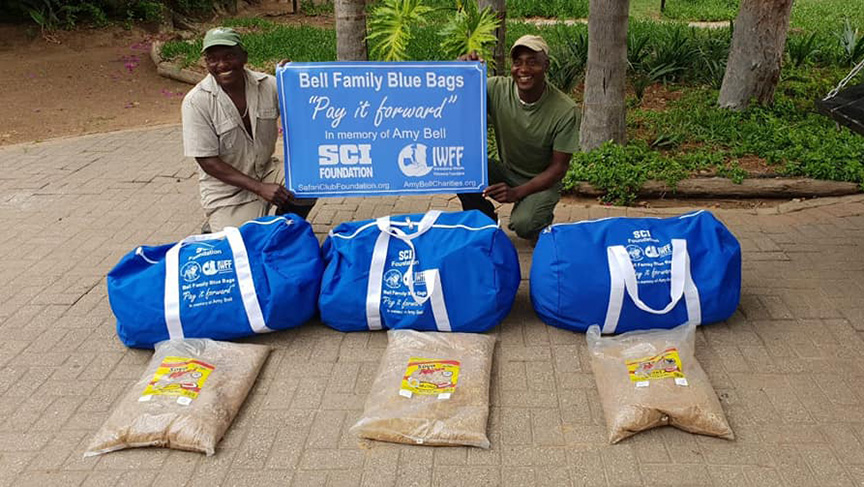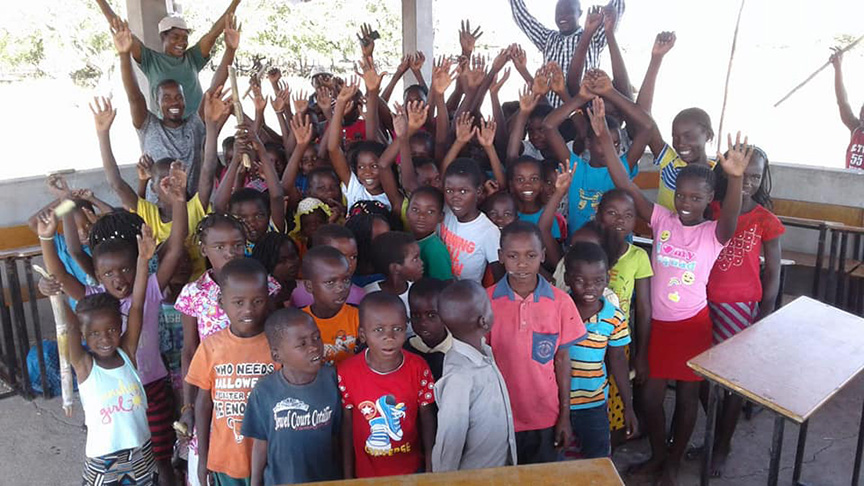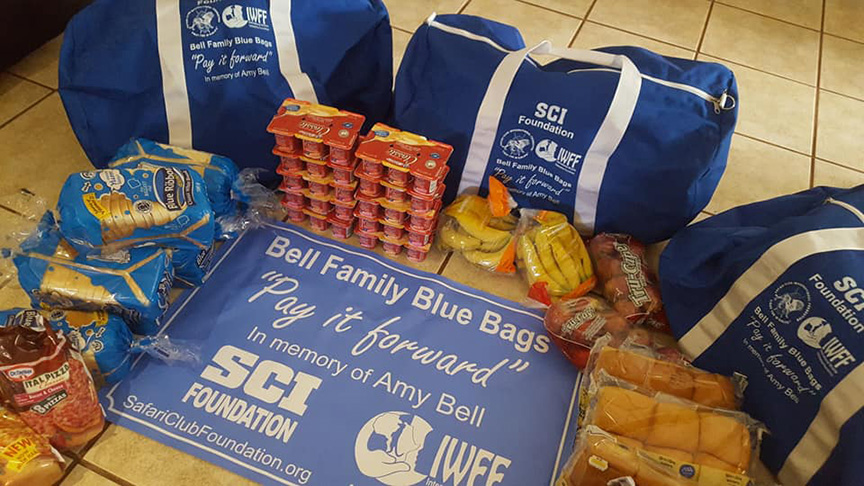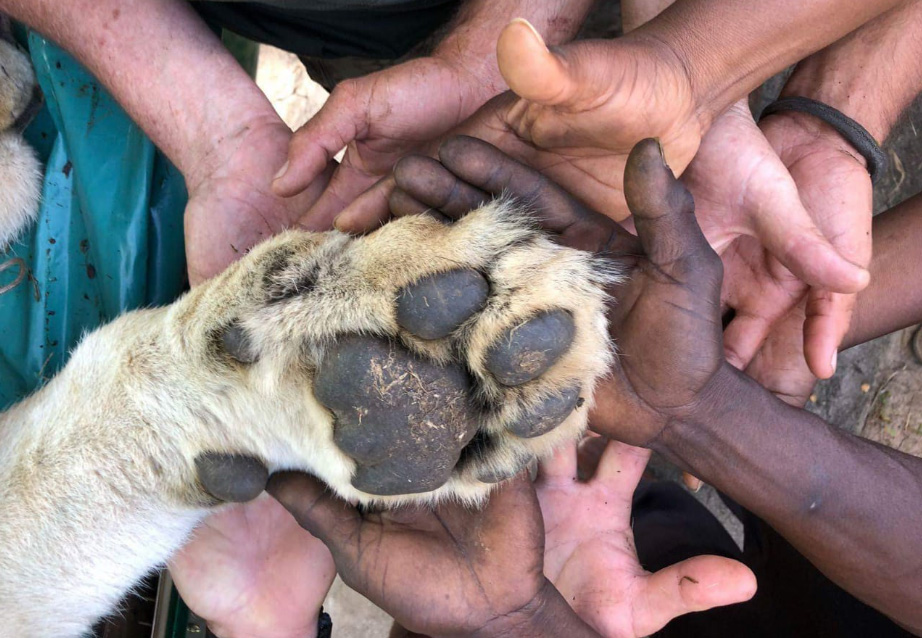We had a chance to chat with Larry Bell about his family’s foundation and the Blue Bag Program while we were at SCI, Reno. The family’s story, of the loss of their daughter, is a tragic one, however, what they’ve created is an inspiration.
New Partnership with International Wildlife Fellowship Foundation Moves Bell Family Blue Bag Program Forward in Africa
We’ve been following Colorado Parks and Wildlife’s reports regarding a mountain lion who attacked trail-runner. In the report, we’ve learned that the mountain lion attacked the runner from behind and that the runner made it to the hospital for care for his injuries. CPW indicates that they’re doing a necropsy on the lion. What we do not know is what the runner used in self-defense, if the cat is deceased due to the hiker’s defense or if CPW put it down. We’ll share additional reports if we see them.
CPW and Larimer County investigating mountain lion attack at Horsetooth Mountain Open Space

LARIMER COUNTY, Colo. – Colorado Parks and Wildlife officers, working with Larimer County Department of Natural Resources, are investigating a mountain lion attack on a trail runner using the West Ridge Trail at Horsetooth Mountain Open Space on Monday, Feb. 4. The victim was able to defend himself from the attack, resulting in the death of the juvenile mountain lion. The runner was then able to leave the open space property and get himself to a local hospital.
“Mountain lion attacks are not common in Colorado and it is unfortunate that the lion’s hunting instincts were triggered by the runner,” Ty Petersburg, area wildlife manager for Colorado Parks and Wildlife said. “This could have had a very different outcome.”
The victim of the attack described hearing something behind him on the trail and was attacked by a mountain lion as he turned around to investigate. The lion lunged at the runner, biting his face and wrist. He was able to fight and break free from the lion, killing the lion in self-defense. The runner sustained serious, but non-life threatening injuries as a result of the attack.
As wildlife officers searched the trail area provided by the runner, the body of a juvenile mountain lion was found within feet of several possessions that the victim asked the officers to look for on the trail. The lion has been taken to the Colorado Parks and Wildlife animal health lab for a necropsy.
“The runner did everything he could to save his life. In the event of a lion attack you need to do anything in your power to fight back just as this gentleman did,” said Mark Leslie, Colorado Parks and Wildlife Northeast Region manager.
Mountain lion attacks on people are rare, with fewer than 20 fatalities in North America in more than 100 years. Since 1990, Colorado has had 16 injuries as a result of mountain lion attacks, and three fatalities. Lion populations are doing very well in Colorado, but they are elusive animals and tend to avoid humans. Most people will never see a lion in the wild, but they are there. If you live, work, or play in mountain lion country, it is important to be alert.
What to do if you encounter a mountain lion:
- Do not approach a lion, especially one that is feeding or with kittens. Most mountain lions will try to avoid a confrontation. Give them a way to escape.
- Stay calm when you come upon a lion. Talk calmly and firmly to it. Move slowly and never turn your back on it.
- Stop or back away slowly, if you can do it safely. Running may stimulate a lion’s instinct to chase and attack. Face the lion and stand upright.
- Do all you can to appear larger. Raise your arms. Open your jacket if you’re wearing one. If you have small children with you, protect them by picking them up so they won’t panic and run.
- If the lion behaves aggressively, throw stones, branches or whatever you can get your hands on without crouching down or turning your back. Wave your arms slowly and speak firmly. What you want to do is convince the lion you are not prey and that you may in fact be a danger to the lion.
- Fight back if a lion attacks you. Lions have been driven away by prey that fights back. People have fought back with rocks, sticks, caps or jackets, garden tools andtheir bare hands successfully. We recommend targeting the eyes and nose as these are sensitive areas. Remain standing or try to get back up!
Respecting wildlife includes being informed on how to avoid or manage wildlife encounters. To learn more about living with wildlife in Colorado, visit cpw.state.co.us.
“Working with like-minded groups like IWFF greatly expands our ability to reach those in need around the world,” said SCI Foundation president Bob Benson. “By supporting local communities and helping to meet their humanitarian needs, we hope to further our conservation mission by helping to alleviate some of the pressures facing wildlife in some of the poorest areas of Africa. If wildlife is to survive, the people living in these areas must see a benefit. We’re hoping, with IWFF’s help, to provide that benefit.”
CLICK HERE To support this and other SCI Foundation programs, make a donation today.
Categories: Colorado News


 SCI Foundation is proud to announce a new partnership between our Foundation, the Ellen and Larry Bell Family, and the International Wildlife Fellowship Foundation (IWFF) aimed at helping those in need in Africa through an expansion of the successful Safari-Care Bell Family Blue Bag program. This new partnership provides Blue Bags and funding for IWFF to purchase and distribute items that will aid in the humanitarian relief and social responsibility efforts for needy individuals in Africa. The funds were provided by SCI Foundation from a special grant provided by the Bell Family.
SCI Foundation is proud to announce a new partnership between our Foundation, the Ellen and Larry Bell Family, and the International Wildlife Fellowship Foundation (IWFF) aimed at helping those in need in Africa through an expansion of the successful Safari-Care Bell Family Blue Bag program. This new partnership provides Blue Bags and funding for IWFF to purchase and distribute items that will aid in the humanitarian relief and social responsibility efforts for needy individuals in Africa. The funds were provided by SCI Foundation from a special grant provided by the Bell Family.






Leave a Reply